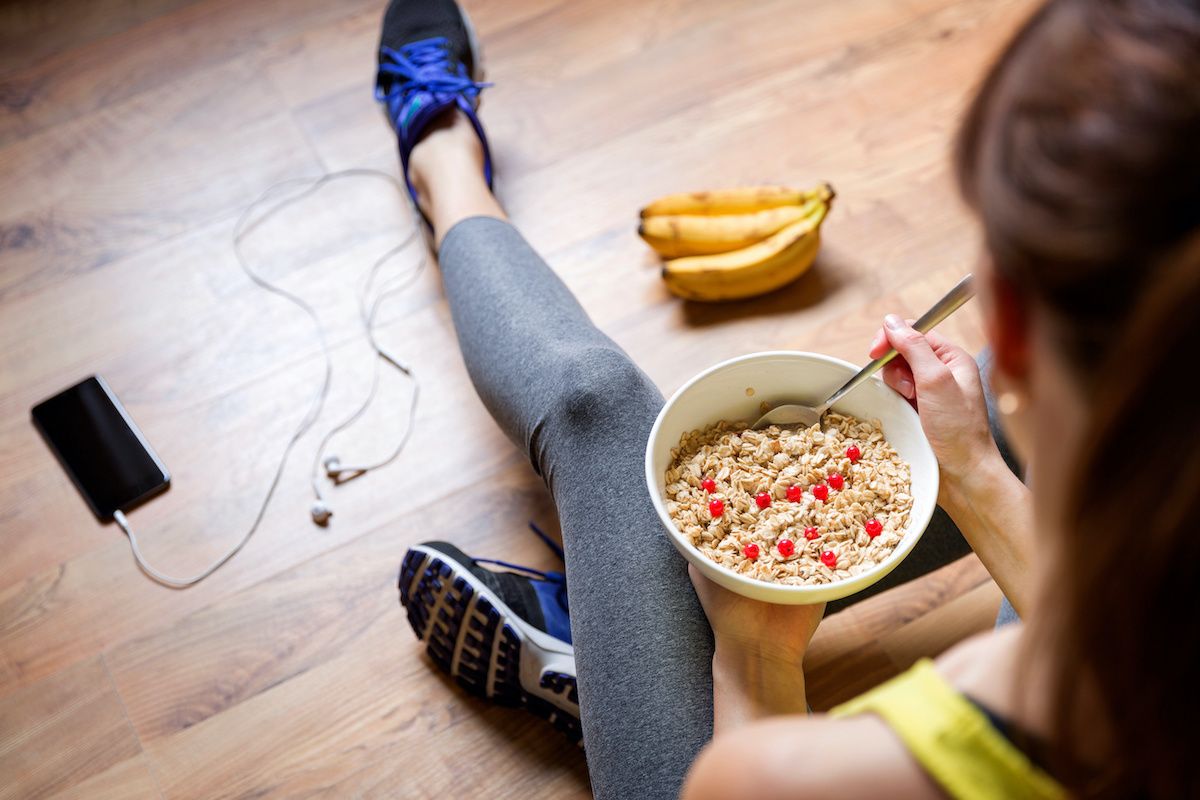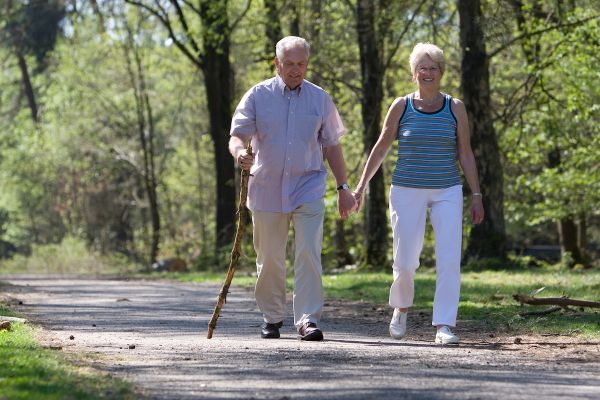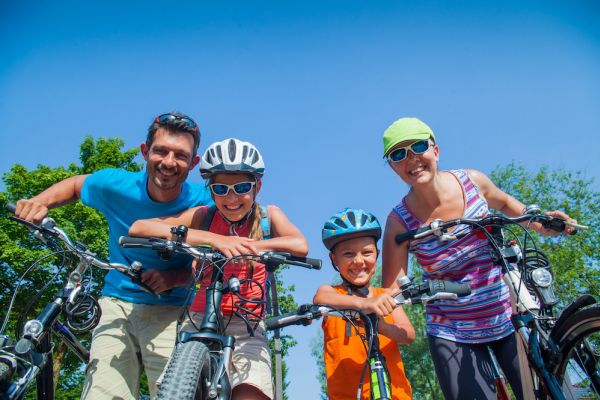As the weather starts to get warmer, now is a great time of year to think about including more physical activity in your day! According to current guidelines, adults need 150 minutes of moderate intensity physical activity per week and muscle strengthening activity at least twice a week. This activity can be broken up into smaller chunks throughout the week in whatever way fits best with your schedule and lifestyle.
In order for your body to perform all this activity, you need fuel, but what’s the best way to get it? Do you really need expensive sports powders, gels or supplements? Should you eat before a workout? Should you eat right after? Let’s jump into some topics on fueling your activity!
Fueling before activity
While some studies show that exercising without eating first can increase your body’s ability to use fat for fuel, this does not necessarily translate into greater body fat loss. Eating before exercise helps give you the energy you need to get out there and be active. But you’ll want to avoid gastrointestinal upset by paying attention to what and when you are eating. Ideally, you want to eat one to three hours before being active. If you are eating a normal size meal, wait two to three hours before jumping into an activity. A pre-activity meal should be rich in carbohydrates (like whole grains, fruit and starchy vegetables), moderate in protein and low in fat. Steer clear of high fat or greasy foods before exercise because they take longer to digest, which could lead to upset stomach. Whole-grain toast with eggs or oatmeal with fruit and milk could be options for a morning meal a couple hours before activity.
If you exercise first thing in the morning, or you have only an hour or less to get some food in before an activity, try a snack such as Greek yogurt with fruit, a smoothie or a peanut butter and jelly sandwich. If you want to eat something only 10 minutes before activity, grab a piece of fruit like a banana! Be sure to stay hydrated regularly throughout the day and drink a couple cups of fluid in the few hours before activity as well.
Everyone’s bodies are different and will tolerate different foods before exercise. Some people may want to avoid lots of fiber before exercise. Ultimately, let your own experiences and personal preferences help you decide what to eat before activity.
Have more questions?
Our nutrition team at Roswell Park plays an important role in your care — before, during and after treatment.
Learn MoreRe-fueling during activity
If your activity lasts an hour or less, you don’t need to worry about eating during your activity. However, it is still important to stay hydrated with small frequent sips of water. If your activity is going to be more than an hour, you want to start thinking about fueling during the activity. Your primary source of fuel during activity, particularly moderate or vigorous activity, should be carbohydrates. While everyone’s needs are different, about 50 to 100 calories of carbohydrates every 30 minutes or so is a good starting point. This could be half a banana or half of a peanut butter and jelly sandwich or specially formulated sports gels and drinks.
Snacks and sports drinks are not typically necessary if your exercise is less than an hour. However, sports drinks provide electrolytes, which you lose through sweat. Replenishing electrolytes is important when the activity lasts longer than an hour or the temperature is hot and you are sweating more. If your activity is low intensity and very long, like a long hike, consider bringing other foods with you like trail mix, fresh or dried fruit, granola bars and some protein like a pouch of tuna and crackers.
Post activity replenishing
After activity, you should have a balanced meal to refuel. Most people don’t need a protein supplement or a specific recovery drink. Make sure your meal includes carbohydrates and protein for refueling and repairing.
When it comes to the timing of your post-exercise meal, some studies show that consuming protein immediately after exercise is important, while others show no difference in effect if you wait several hours. If your next meal is more than two hours after your activity ends, consider having a snack. A glass of chocolate milk is the perfect carbohydrate-to-protein ratio to help you recover and refuel. After exercise, it’s still important to keep up your fluid intake as well.



